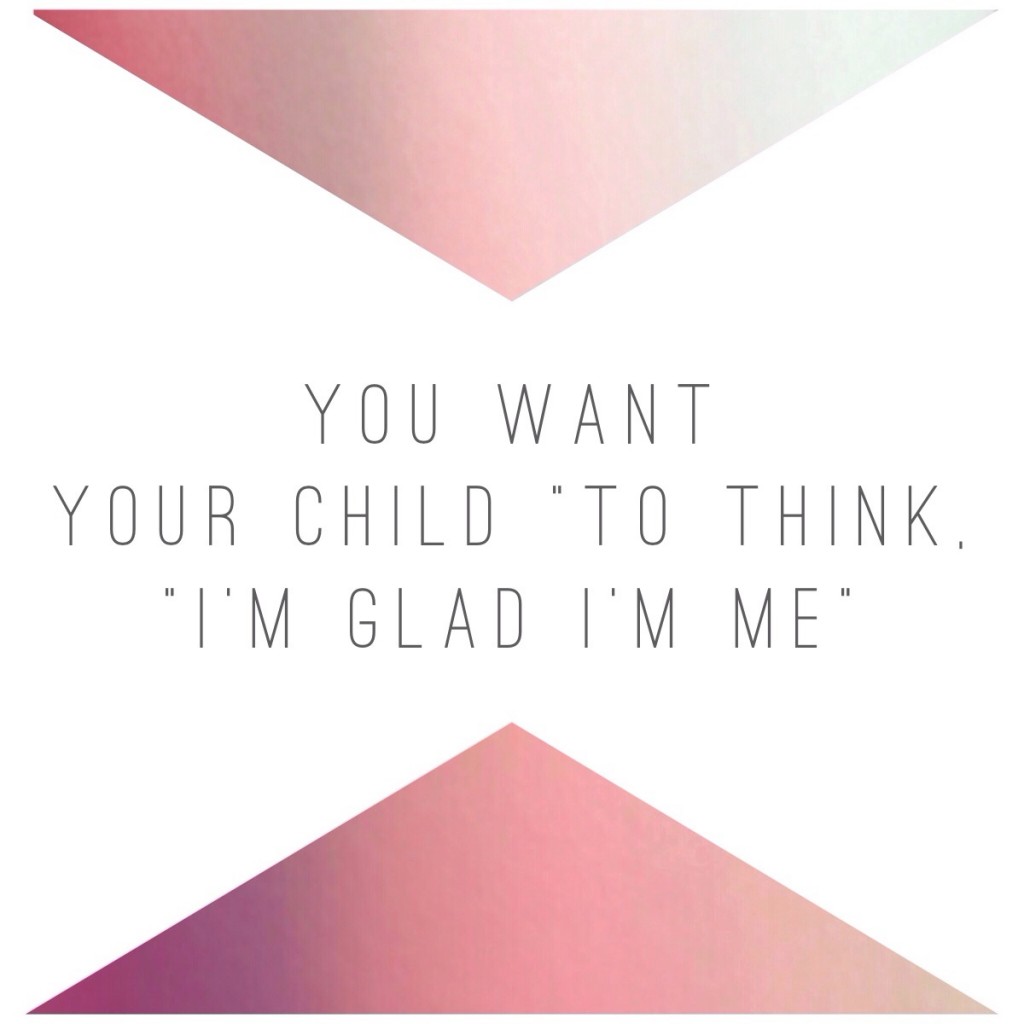
Modern parents have so much to think about! They worry about their children’s grades, bullies on the playground, the negative influence of the media and too much time spent on computers and electronic games.
Instead of worrying about the things over which they have little control, moms and dads can direct their energy to inspiring kids in the place where they have great influence- their children’s self esteem! Studies indicate that the strongest indicator of a child’s future success in school and in life is his/her self-esteem. Self-esteem plays a larger role in predicting achievement and happiness than does intelligence, family income level, divorce, or cultural background.
Self-esteem is how you feel about yourself. You want your child to think, ‘I’m glad I’m me.’ You want to encourage your child to dream, to imagine, to trust that life is a playground, not a battlefield, and that he/she can handle whatever challenges life brings. The system of belief learned at home is the first and most influential element in developing a healthy sense of self.
In general, children with high self-esteem are confident, willing to take risks and not afraid of failure or rejection. They tend to be happy, smiling, energetic, truthful, and optimistic about their future. At school they usually enjoy learning, have realistic expectations, take part in discussions, are helpful, share, recognize and appreciate the accomplishments of others, knowing that building someone else up doesn’t threaten their own good feelings about themselves. They do not attract bullies.
Children with ADD, dyslexia and other learning disabilities can have high self-esteem. The key element is the messages the child receives about his value and self worth from his parents.
While parents want their children to have healthy self- esteem, many of the things parents do actually rob their kids from feeling good about themselves. How sad. I am hoping that we can change that direction by encouraging parents to be more aware of their own behavior and choose to be more conscious.
Here are some things you can start to do today to enrich your children’s self-esteem:
1. Work on your own self- esteem: It is hard to give our children what we do not have ourselves. Our words do not teach. It is what you model and children experience that become their truth.
2. Take your attention away from the stuff that annoys or worries you: This is really challenging for parents. We think that by pointing out what needs to be improved we are encouraging higher standards. This can backfire by discouraging kids and making them give up or lie. Allow your children to make mistakes and still feel good. Don’t rush in and save them from themselves. But please, don’t say, “If you had only listened to me….”
3. Focus your attention on the good stuff: Yikes! This can be tricky for us. Start immediately to look for things to appreciate. It can be as simple as taking their plate to the sink. Spend more energy noticing things that please rather than things that annoy. I know that can be challenging but you can do it if you are willing!
4. Praise their Efforts: Children need to know that every step toward a goal is success. Be specific in your praise. Instead of using the lazy, but overused phrase, “Good boy.” or “Good Job.” describe what you see: “You remembered to put the plate in the sink. Thanks for your help.” Praise must be about the child, not the parent. Rather than saying, “That makes me proud of you” (which is all about the parent) say, “Wow, you must be feeling pretty proud of yourself.”
5. Understand & Appreciate Each Child as an Individual: Learn what is typical behavior during different stages of development so you have realistic expectations of your child. Do not compare children- ever! Learn what you can about temperaments so you understand why some kids are more feisty, challenging and sensitive. Hint: It is NOT because they are bad!
6. Allow your Children to Make Decisions: Give them choices when possible. Encourage that great human feeling called self-empowerment. When correction is needed do it in a positive way. Focus on the act and separate behavior from the child’s self worth.
7. Give Language to Their Feelings: Rather than minimize or tell them they shouldn’t feel a certain way- or worse yet- give unsolicited advice- create a ’safe place’ where your child can express feelings. Validate their humanness and allow the feelings to just be. “You ARE angry. You DO feel misunderstood.” Once feelings are truly heard, healing and solutions have a chance to unfold.
Your eventual goal is that your children will decide for themselves how they feel about their uniqueness and their abilities. As parents we have the POWER to preserve their sense of wholeness and self-respect. We can shine a light on their potential, their gifts and their expanding sense of self. And….we can start today!
[x_author title=”About the Author”]
[x_share title=”
Share this Post
” facebook=”true” twitter=”true” google_plus=”true” linkedin=”true” pinterest=”true” email=”true”]


I love this article Sandi, I had so many “AHAH” moments reading it. Thank you for sharing your Knowledge! Love Erin.
THank you Sandi, I do want my daughter to be glad to be HER. I will take the advise to heart.
thanks, its a big help! now I can start to apply it to my daughter, hope she will also be glad about what she is. tnx a lot.